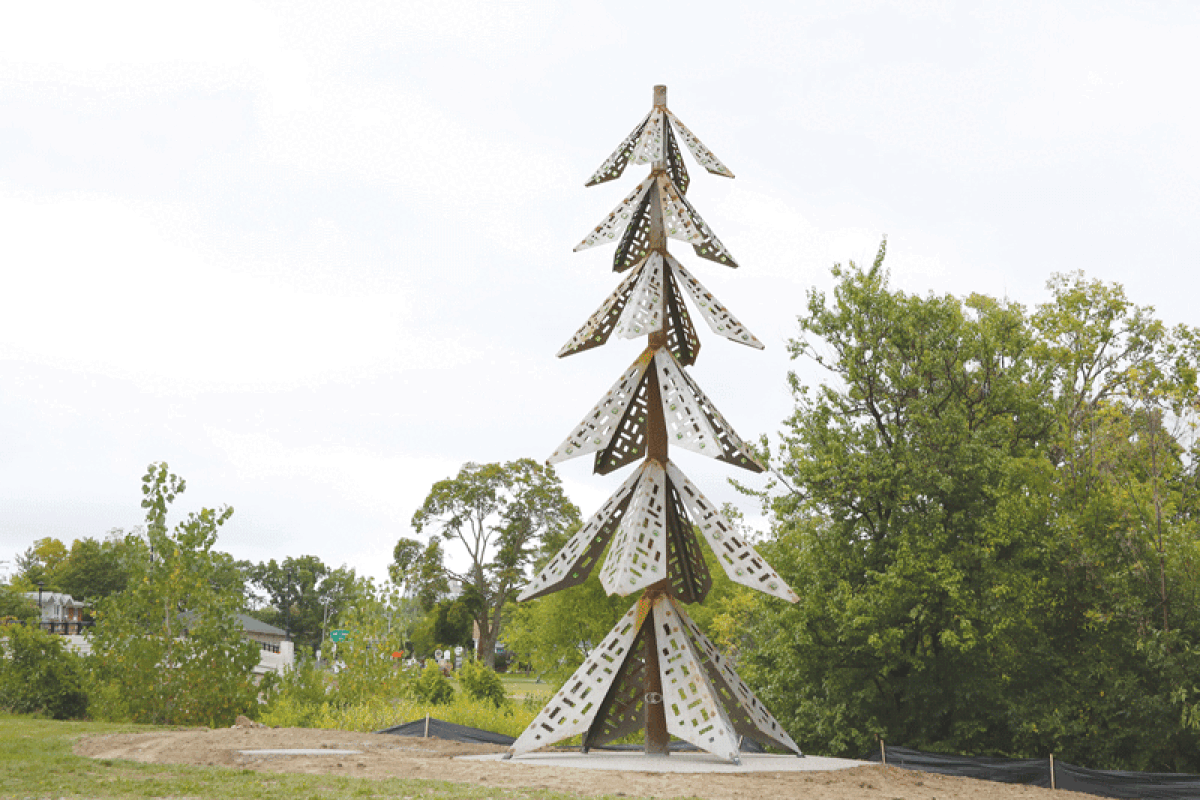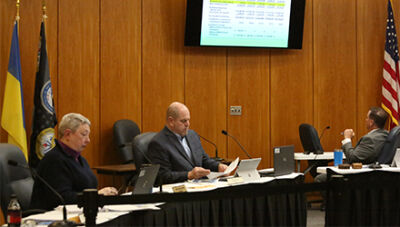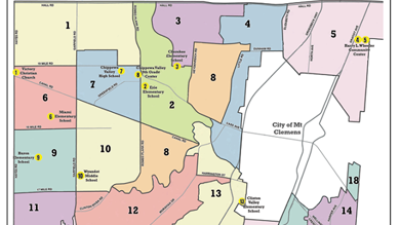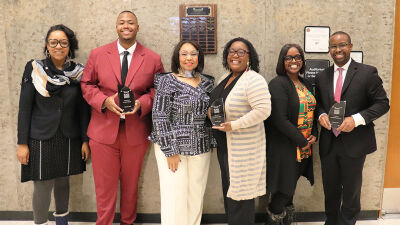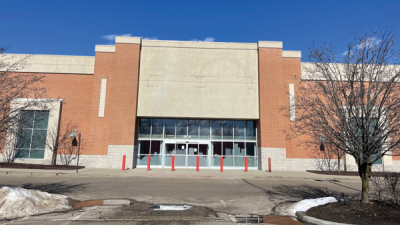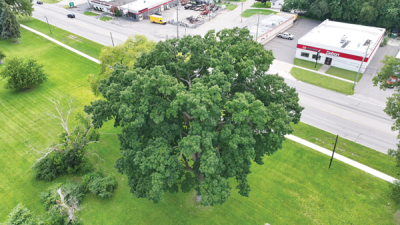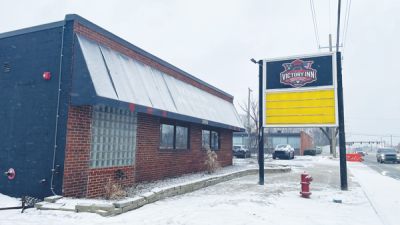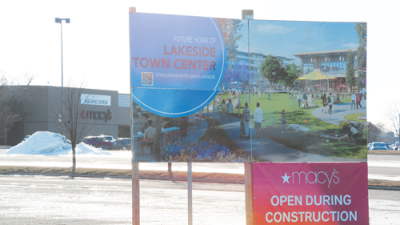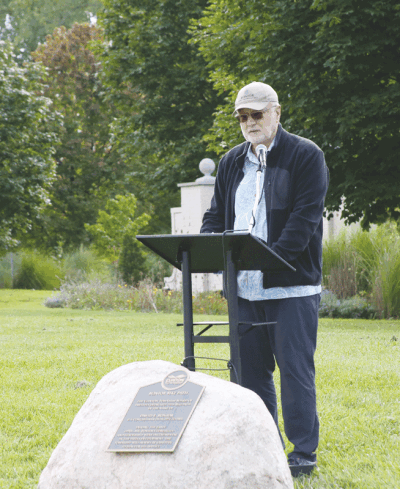
David Bonior speaks at a dedication ceremony for the David Bonior Trail in Clinton Township on the morning of Sept 9.
Photo by Dean Vaglia
CLINTON TOWNSHIP — For 26 years of his life, David Bonior served Macomb County in the U.S. House of Representatives. From labor rights to veterans’ support to environmental issues, the effects of Bonior’s legislative days have gone on to touch countless Americans.
Now 20 years away from working in the Capitol, Bonior’s years of service are memorialized in two separate ways across Clinton Township. The first was the renaming of the Freedom Trail to the David Bonior Trail at a ceremony held on the morning of Sept. 9.
“A lot of people don’t realize how much work it is to be in a job like he had for all those years, how much time away from home he spent,” Clinton Township Supervisor Robert Cannon said.
The trail runs along Metropolitan Parkway in Clinton Township, terminating at Lake St. Clair Metropark in Harrison Township and at Schoenherr Road in Sterling Heights, where it connects to the Clinton River Trail.
Bonior said he was an active user of the trail.
“Judy and I lived near the paths and used them often,” Bonior said. “First running, then taking long walks to the lake five miles from where we live all the way and back. It was wonderful to see the variety of bird life. Red-wing blackbirds were my favorite along the spillway, and today if you walk there, you’ll see swans of all sorts in the water. These pathways are graced with native flora species and other treats for the walkers and runners who take advantage of them. Those walks gave us a pretty good workout — as you can imagine, five miles — but more importantly, they refreshed our minds and spirits, and they reminded us of the beautiful place in the community that we lived in.”
Bonior worked in Congress and with local officials to get the trail made throughout the 1990s, and two plaques thanking Bonior for his efforts are located along the trail.
The second memorial to Bonior’s service is a large metal and glasswork tree located at the corner of northbound Gratiot Avenue and Wellington Crescent, just outside of Mount Clemens on the banks of the Clinton River. Designed by Sterling Heights sculptors Erik and Israel Norden, the tree-shaped sculpture will turn brown as it ages and represents Bonior’s dedication to environmental causes.
One cause that was formative to his federal legislative career was the preservation of the Clinton River’s natural banks. In 1977, federal funds were allocated to lining the river with concrete, but Bonior took the step to have the $345 million removed from a bill.
“It was a bad idea, and it would’ve been a terrible waste of money,” Bonior said. “As a commitment to the environment … we passed out pine seedlings throughout the district — a million trees in over a 30-year period. Legislatively, we banned PCBs, we removed arsenic from our drinking water and we stopped oil drilling in our Great Lakes.”
Numerous county politicians current and past came out to take part in the dedications ranging from former staffers to local officials from as far away as New Baltimore and Eastpointe.
Despite being out of office for 20 years, concerns about partisan cooperation were present at both ceremonies. Bonior spoke of his time finding cooperation with politicians of opposing ideologies at the trail dedication, making reference to working with Macomb County Republicans and members of Canada’s Conservative Party on Lake St. Clair issues. At the sculpture dedication, Bonior spoke of his concerns about the future of the environment and civil political discourse.
“I see as the two top priorities, the environment, saving the planet, and the second one is saving our democracy,” Bonior said. “We have to work at it and we have to think about it consciously, so with your help and with all of these great leaders that are here … together, working together, we can keep it all going.”
 Publication select ▼
Publication select ▼